
A contemplative composition by Ferdinand Schwarz for the Oslo-based ensemble AREPO, Listening Time unfolds as a patient, microtonal exploration of harmonic stasis and collective structure, blending just intonation, fragile textures, and co-composed material in a deep listening experience that merges composed form with improvisational sensibility and communal artistry.
In Stock
Quantity in Basket: None
Log In to use our Wish List
Shipping Weight: 3.00 units
EU & UK Customers:
Discogs.com can handle your VAT payments
So please order through Discogs
Sample The Album:
Ferdinand Schwarz-composer
Madara Eleonora Mezale-clarinet
Marco Slaviero-electric guitar
Noel Rubli-accordion
Elizabeth Kate-cello
Click an artist name above to see in-stock items for that artist.
Label: Another Timbre
Catalog ID: at238
Squidco Product Code: 36220
Format: CD
Condition: New
Released: 2025
Country: UK
Packaging: Cardboard Gatefold
Recorded on April 25th, 2024.
"The contemplative 43-minute work unfolds leisurely, basking in deliciously thick, churning harmonies that float, coalesce, and pull apart time and time again. The ensemble's unusual instrumentation fits the music beautifully, with the acoustic instruments producing thick chords-often distinguished by a vibratory reediness-that hang patiently in the air, enfolding silence, microtonal shifts, and internal movement within the harmonies."-Peter Margasak
Another Timbre Interview with Ferdinand Schwarz
I'd never heard of you or AREPO when you sent in Listening Time, so firstly, could you tell us about your background and how you came to experimental music?
Music played a role throughout much of my childhood; I recall us singing for hours on end on family-trips in the car. At the age of seven I picked up the trumpet. Later, I studied jazz in Cologne and got more deeply into improvised and experimental music. But my interest in experimental composition really just took off during the pandemic.
With the newly found time that the lockdowns gave me, I went from one online rabbit hole to the next, delving into the work of artists who spoke about why they do what they do. Political, concrete or abstract, fundamental or elusive, their efforts to put words to the why question of art resonated with me.
I got obsessed with the music of John Cage, Éliane Radigue and Morton Feldman, but also Jon Gibson and Arthur Russell. I had always been drawn to music that allowed me to dissolve in it, whether listening or playing. I think this is what I am still looking for in music; a sort of creative perceiving, as a tool to grow, transcend, to lose ego - and this outside of common categories of purpose or profit. I became more specifically fascinated with the act of listening and its creative potential during my free master studies in Oslo, and engaged more with sound art, instrument building, intonation systems, and listening-based music territories.
You were keen for AREPO (the ensemble who play Listening Time) to be co-credited as composers of the piece. Could you explain how the ensemble operated in the production of the music, and also tell us a bit about the ensemble's background?
AREPO and I first crossed paths while studying together in Oslo, where we had already collaborated in various constellations, including performing some of my improvisatory pieces. When they invited me to compose for them, I was thrilled-this ensemble brings an unparalleled dedication to the music they create. The group officially formed during the development of a performative work, a process that solidified our shared artistic values. Reflecting on their origins, they explain: "What began as a whim evolved into a deeply connected musical relationship, transcending our instruments. This process prioritised human connection over instrumentalism, embedding core values of community, individuality, and a rejection of hierarchy at the heart of our practice."
While I was thinking about the piece for AREPO, I went on a residency with improvisors Jonas Gerigk and Etienne Nillesen in a small village in eastern Germany. During this stay, we worked with improvised reductionist forms, which came to be fundamental for the conception of Listening, Fractions, Time.
I had been working a lot with forms that touch upon senses of stasis. I was intrigued by non-developmental music, where to me sound is not used to narrate the story itself, but is the structure of the plot on which listeners build their own narratives. I loved the listening/playing experiences these forms offered. Fragile by nature, these structures need a lot of care and quick decision-making to be held afloat, with soft hands. And improvising this is quite challenging.
Thus, I decided to write the form (structure of the plot) for AREPO first and then fill it with material together afterwards. To me it is still connected to improvisation, but improvisation which has been petrified in time. I had clear ideas of the material, which I think we all had: unforced, direct, plain.
So we filled up the form with content together, bit by bit, testing harmonies and registers. I guided the just intonation framework that the piece uses, but many ideas came from the ensemble and our shared process. After a few of those sessions the material we had became so clear (and time so scarce), that I just finished the other half of the piece, filling in material, composing alone what we had figured out together.
Do AREPO have similar relationships with other composers, or is your collaboration the first?
This is more a question for AREPO than me, so I passed the question on to them, and they sent this response:
AREPO approaches every project with a genuine commitment to collaboration and process. Whether we're diving into improvisation or working on a commissioned piece, it's always about exploring together and seeing where the music takes us. From the start, we've been guided by values like community, individuality, and a sense of equality-things that have naturally shaped how we work and connect with others.
Our work with Ferdinand Schwarz stands out as a particularly meaningful partnership. What made this collaboration unique wasn't just the collective connection we built as an ensemble, but the individual relationships each of us developed with Ferdinand. These personal connections created a foundation of trust and understanding that shaped the creative process in profound ways.
When Ferdinand presented the concept for Listening Time, it felt less like the start of a new piece and more like the natural evolution of an ongoing dialogue. While AREPO strives to cultivate this kind of relationship with everyone we work with, the depth of trust and creative synergy we experienced with Ferdinand has set a high standard for what collaboration can be. It allowed us to engage with the music in a way that felt organic and deeply personal, letting the composition emerge as something greater than the sum of its parts. This process underscored what we hold most dear: the belief that collaboration isn't just about creating together but about truly listening-to one another, to the music, and to the spaces we inhabit.
Has the recorded version of Listening Time been played live yet? And if so, what kind of response did you get?
The 45 minutes of Listening Time are not always easy to fit into a program with various pieces, so we didn't have the chance to perform the piece in its entirety yet. However, we will present it as a standalone piece in a concert in Oslo in March 2025. We care a lot about the context in which this long-form music will be presented, so we're making sure that the space invites for a continuous deep listening experience with respective floor seating and light.
Do you have other projects planned? And will you be working with AREPO again, or will you be working with other ensembles?
At the moment, I am working on some projects that evolve more around instrument building and sound installation-performance. I am continuing my research on the physical and psychoacoustic properties of wave interference as I did in my master thesis. This is a fascinating field, as this phenomenon aptly showcases the wondrous creative potential in our individual listening. Specifically, the spatial and phenomenological aspect interests me here.
One project stemming from this occupation is the release of my debut solo album Views of a Sculpture on Superpang this year which features an installation of automated, spatialised, and fine-tuned melodicas. This record approaches harmonic space through spatial recording technique and further explores listening in a seemingly static form.
I am currently also collaborating with other artists: I'm particularly excited about experimentations I do together with composer and kacapi-player Kristofer Svensson, working on improvisatory just intonation music. And besides that, new compositions for solo percussion and solo koto (the Japanese string instrument, or zither) are scheduled in 2025. I still host my communal monthly listening session Sounding Listening in Oslo and am writing music for my large ensemble Gradient. As for AREPO, I am sure we will continue working together in the future, if not creating a new piece, then surely performing together in varying constellations.
Artist Biographies
• Show Bio for Ferdinand Schwarz "Exploring issues of time and perception, Ferdinand Schwarz is a composer-performer intrigued by slow and seemingly simple sounds, that he deploys in the design of compositions and communal listening practices. In search of a music that allows one to be immersed in its presence, unchanging, not telling a story as such, but making space for being continuous and presently now, his work unfolds in formal rigour towards an emotional depth that fosters emptiness and recalibration; in resistance of a high-paced and profit based concept of the world. Ferdinand is interested in listening as an active condition; a creative and contingent tool pointing towards states of magnified presence and self-experience. His solo project Do You Hear What I Hear? is a performance-installation utilising psychoacoustics and the experience of space via listening with a self-built instrument made of multiple air-pressure machines and melodicas. Since 2023 he hosts regular sounding listening sessions where communal listening practices are explored." ^ Hide Bio for Ferdinand Schwarz • Show Bio for Madara Eleonora Mezale "Madara Eleonora Mežale is a Latvian-born clarinetist, currently based in Oslo, Norway. She is pursuing her master's degree at the Norwegian Academy of Music (NMH), studying under Professor Björn Nyman and Hans Christian Bræn in the fall semester of 2024. Prior to this, in June 2024, she completed her bachelor's degree at NMH, building on her education from the Emils Darzins Music School, one of Latvia's top institutions, where she studied with the country's leading clarinet teacher, Gunārs Kļaviņš. Her musical journey began with early education at the Pāvuls Jurjāns Music School, under the guidance of Juris Vanags. During her early years as a clarinetist, Madara actively participated in various national and international competitions in Latvia, becoming a laureate of the Latvian State Competition for woodwind instruments, the National Competition for Young Talents, and Eduards Mednis International competition among others. Alongside her training in symphonic music throughout her education, she also gained valuable experience through orchestral programs in Norway, including Ungdomssymfonikerne and UngFil. Besides her training in orchestral music, Madara developed a strong passion for solo and chamber music. She has performed with various chamber music groups, exploring the most celebrated works in the clarinet chamber music repertoire. Her participation in numerous concerts and festivals, such as the Oslo Chamber Music Festival, further reflects her diverse musical engagements. In addition, Madara was a finalist of the Ungdomssymfonikerne soloist audition in the fall of 2023. She has also taken part in chamber music competitions in Latvia, including the V International Competition for Piano Ensembles and Instrumental Chamber Orchestras with Piano, as well as the VIII International Brass and Rhythmic Ensembles and Orchestra Rhythmic Music Festival - Competition. Madara's focus on blending classical solo and chamber music with modern and contemporary works represents a thoughtful and forward-looking approach to her master's studies. By selecting works for clarinet and piano written after World War II, she aims to explore often overlooked pieces in the repertoire. This dedication to the rediscovery of underrepresented music, in combination with established core repertoire, not only enriches concert programs but also broadens our understanding of music history. Her philosophy underscores the idea that music history is not a monolithic narrative dominated solely by canonical works. By integrating new compositions, Madara adds depth to how we perceive music. She emphasizes that these forgotten layers offer invaluable perspectives, showing how music has evolved and been shaped by various historical, cultural, and social factors. The fusion of modern pieces with the classical canon creates an innovative framework that invites listeners to reconsider familiar works while gaining insight into the diversity of musical expression throughout history. This approach also challenges the audience's perception of what defines "important" music. It advocates for a more inclusive understanding of the term, highlighting the importance of different voices in shaping the music world. Through this, Madara opens a space for both traditional and contemporary music to coexist, inspiring fresh dialogues about creativity, context, and the development of musical literature. By crafting concert programs with this philosophy in mind, Madara not only educates but also creates a rich and engaging concert experience, encouraging listeners to appreciate the complexity and depth of the clarinet and piano repertoire from a renewed perspective." ^ Hide Bio for Madara Eleonora Mezale • Show Bio for Marco Slaviero "Marco Slaviero is an Italian musician based in Oslo, Norway. The current focus in his musical projects is contemporary and avant-garde music in which he's mainly involved as classical and electric guitarist, and occasionally performer and multi instrumentalist. He's actively involved in commissioning and performing new music as solo artist, and with his two main chamber music projects: AREPO contemporary music ensemble for clarinet, accordion, cello and guitar; and Slaviero:Nannestad guitar duo. Since about four years, Marco's practice as a classical musician has been limited by a tendinitis in his left index finger; therefore experimenting with new techniques and equipment was and is essential to overcome this period of uncertainty. Implementing electronic music, improvisation, new commissions and instrumentation such as electric guitar in its practice, Marco's artistic project aims to explore different paths available to an injured musician by rethinking his identity and delving into the fragilities and vulnerabilities of a performer. Marco has recently collaborated with Ultima-Oslo Contemporary Music Festival, MUNCH Museum, nyMusikk Innlandet, Ensemble Lime and Eighth Blackbird. He completed his Bachelor's degree in classical guitar at the Conservatory of Music A. Pedrollo in Vicenza, Italy where he's also attending the Master's degree. In May 2024 he concluded a Master in Music Performance at the Norwegian Academy of Music with contemporary music as the main subject of his studies." ^ Hide Bio for Marco Slaviero • Show Bio for Noel Rubli "Noël Rubli is a swiss accordionist based in Oslo. With his music he wants to provide an alternative to the (literal and metaphorical) noise that is constantly surrounding us. He works mainly with contemporary music in the expanded field but also has a passion for improvised and early music. Noël is the organiser and curator of the concert series listening:resonating, which has taken place numerous times, was programmed the at Ultima and Ding-Dong festival and has premiered a number of works. The concert series focuses on new music, new concert concepts and the act of listening as an essential part of experiencing music. In this way, he also hopes to facilitate access to new music. Noël has performed in Norway, Sweden, Switzerland and the USA and has participated in a number of festivals such as the Ultima Festival and the Bergen Festspillene." ^ Hide Bio for Noel Rubli • Show Bio for Elizabeth Kate "Elizabeth Kate is a Brooklyn-based cellist and vocalist-often both at once-whose work expands the contemporary classical repertoire by creating and commissioning new music for the vocalizing cellist. Her practice centers the body as instrument, blurring the lines between voice and cello, performer and composer. Through improvisation, vocalization, and composition, Elizabeth explores how sound moves through and around the body, guiding the listener's attention in ways that challenge fixed perceptions of control and authorship. Her recent solo project, As One, is a compositional and performative inquiry into presence, resonance, and the dissolving of boundaries-between sound sources, identities, and traditions. By merging voice and cello, Elizabeth reimagines what it means to perform, to listen, and to be heard. Elizabeth is also a founding member of the transatlantic ensemble AREPO, formed during her studies in Norway and now active between Oslo and New York City. The group's unconventional instrumentation-accordion, cello, clarinet, and electric guitar-opens new possibilities for collaborative creation. Their upcoming album, Listening: Time by Ferdinand Schwarz, will be released in April 2025 on the experimental label Another Timbre. The recording was named one of Bandcamp's Best Contemporary Classical Albums of March 2025. Elizabeth has performed with the Munch Museum of Oslo, Eighth Blackbird, Cassandra Jenkins, Ensemble Lime, Rolf-Erik Nystrom, Håkon Thelin, Natsumi Osborn, Bang On A Can, and Yarn/Wire. Her recent solo set, Voice of Cello, has appeared at the 2024 DingDong? Festival in Oslo and the 2023 Ultima Festival of Contemporary Music. She holds a BM and BA from Oberlin College and Conservatory, and an MM from the Norwegian Academy of Music. Elizabeth performs on an 18th-century French cello by Andrea Castegnari, gifted by the Virtu Foundation for emerging artists." ^ Hide Bio for Elizabeth Kate
1/5/2026
Have a better biography or biography source? Please Contact Us so that we can update this biography.
1/5/2026
Have a better biography or biography source? Please Contact Us so that we can update this biography.
1/5/2026
Have a better biography or biography source? Please Contact Us so that we can update this biography.
1/5/2026
Have a better biography or biography source? Please Contact Us so that we can update this biography.
1/5/2026
Have a better biography or biography source? Please Contact Us so that we can update this biography.
Track Listing:
01. Listening Time 42:28
Compositional Forms
Quintet Recordings
Ambient, Minimal, Reductionist, Onky Sound, &c.
New in Compositional Music
Recent Releases and Best Sellers
Search for other titles on the label:
Another Timbre.


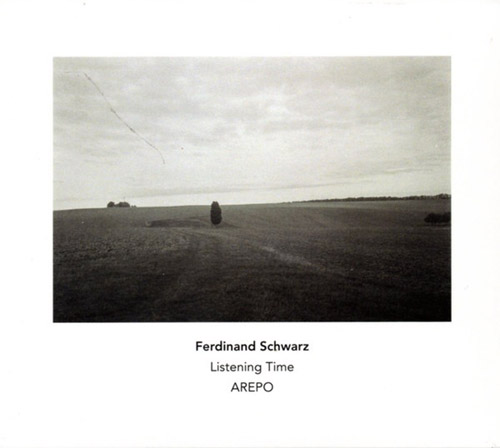









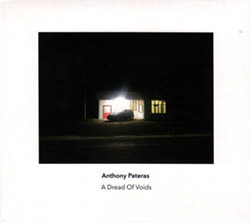
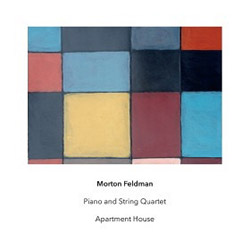
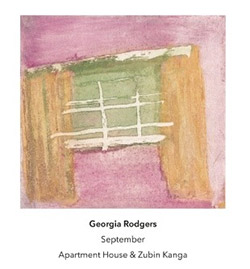
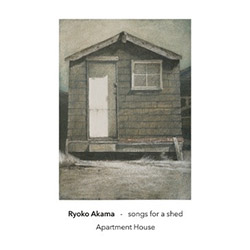



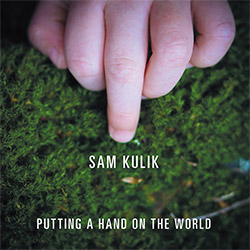
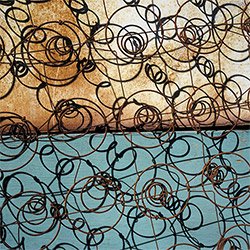



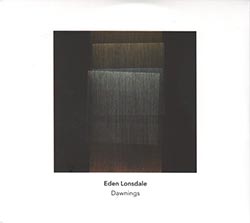


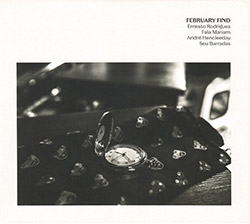




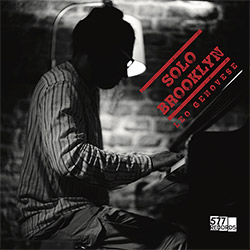
![Coley, Byron / Mats Gustafsson / Thurston Moore: Now Jazz Now: 100 Essential Free Jazz & Improvisation Recordings (1960-80) [BOOK]](https://www.teuthida.com/productImages/misc4/36932.jpg)
![Evans, Peter / Being & Becoming: Ars Ludricra [VINYL + DOWNLOAD]](https://www.teuthida.com/productImages/misc4/37026.jpg)
![HobbyHouse (Mia Dyberg / Axel Filip): HobbyHouse [CD + DOWNLOAD]](https://www.teuthida.com/productImages/misc4/36944.jpg)
![Mines, Kelsey / Erin Rogers: Scratching At The Surface [CD + DOWNLOAD]](https://www.teuthida.com/productImages/misc4/36945.jpg)
![Nebbia, Camila (feat/ Marilyn Crispell / Lesley Mok): A Reflection Distorts Over Water [CD + DOWNLOAD]](https://www.teuthida.com/productImages/misc4/36946.jpg)
![Vanheerentals, Adia: Taking Place [CD + DOWNLOAD]](https://www.teuthida.com/productImages/misc4/36947.jpg)
![Mines, Kelsey / Vinny Golia: Collusion and Collaboration [CD + DOWNLOAD]](https://www.teuthida.com/productImages/misc4/36948.jpg)
![Parkins, Zeena: Lament For The Maker [CD + DOWNLOAD]](https://www.teuthida.com/productImages/misc4/36949.jpg)
![Evans, Peter / Mike Pride : A Window, Basically [CD + DOWNLOAD]](https://www.teuthida.com/productImages/misc4/36950.jpg)


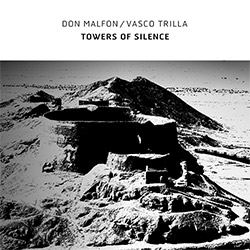
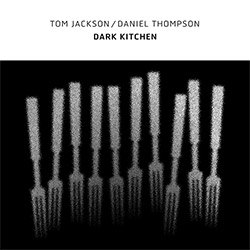
![Frey, Jurg : Composer, Alone [3 CDs]](https://www.teuthida.com/productImages/misc4/36927.jpg)
![Belorukov, Ilia / Alex Riva: Wrestling For Futility [CASSETTE w/DOWNLOAD]](https://www.teuthida.com/productImages/misc4/36994.jpg)
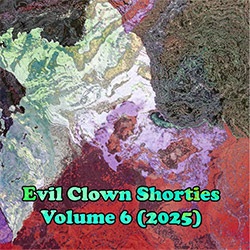
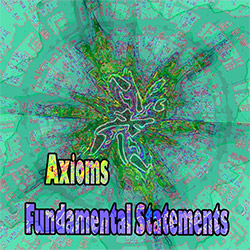







![Agnel, Sophie: Learning [VINYL]](https://www.teuthida.com/productImages/misc4/36841.jpg)
![Monaco, Amanda (w/ Michael Attias / Sean Conly / Satoshi Takeishi) : Deathblow [VINYL+ DOWNLOAD]](https://www.teuthida.com/productImages/misc4/36956.jpg)

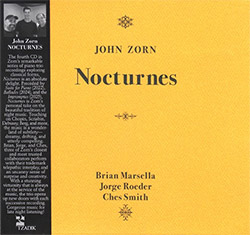
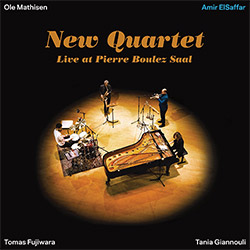
![ElSaffar, Amir / New Quartet : Live at Pierre Boulez Saal [VINYL]](https://www.teuthida.com/productImages/misc4/36830.jpg)

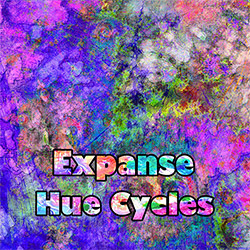
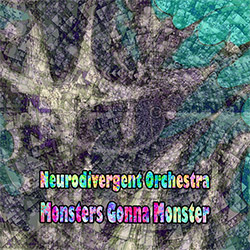
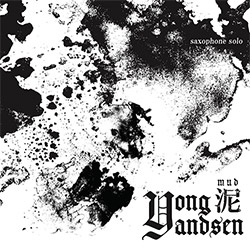

![Musicworks Magazine: #152 Fall 25 [MAGAZINE + CD]](https://www.teuthida.com/productImages/misc4/37004.jpg)
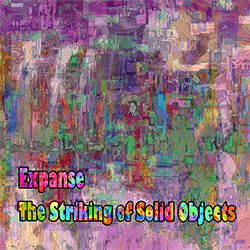




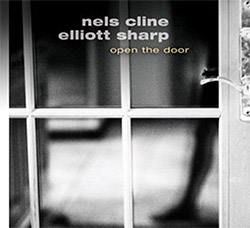
![[ahmed] (Thomas / Grip / Gerbal / Wright): Sama](https://www.teuthida.com/productImages/misc4/36976.jpg)

![Genthon, Anouck / Lionel Marchetti: Suite Blanche [2 CDs]](https://www.teuthida.com/productImages/misc4/36642.jpg)
![Toeplitz, Kasper T.: Erosions Programmees [CD + BOOKLET]](https://www.teuthida.com/productImages/misc4/36639.jpg)
![Gate, The : Almost Live [CASSETTE + MAGAZINE]](https://www.teuthida.com/productImages/misc4/36836.jpg)






![A Magic Whistle: The Solar Cell [VINYL]](https://www.teuthida.com/productImages/misc4/36658.jpg)

![McGee, Hal: Columbus Expedition [Cassette w/ Download]](https://www.teuthida.com/productImages/misc4/36650.jpg)


![Jaeger, Kassel: Fernweh [VINYL 2 LPs]](https://www.teuthida.com/productImages/misc4/36541.jpg)





![+DOG+: The Light Of Our Lives [2 CDs]](https://www.teuthida.com/productImages/misc4/36009.jpg)


![Eternities: Rides Again [CASSETTE]](https://www.teuthida.com/productImages/misc4/36247.jpg)

![Lopez, Francisco: Untitled (2021-2022) [2 CDs]](https://www.teuthida.com/productImages/misc4/36438.jpg)



![Frey, Jurg with ensemble]h[iatus: Je Laisse A La Nuit Son Poids D](https://www.teuthida.com/productImages/misc4/36988.jpg)




![Pisaro-Liu, Michael: Within (2) / Appearance (2) [2 CDs]](https://www.teuthida.com/productImages/misc4/36831.jpg)







![Musicworks Magazine: #151 Summer 25 [MAGAZINE + CD]](https://www.teuthida.com/productImages/misc4/36559.jpg)

![Brown, Dan / Dan Reynolds: Live At The Grange Hall [unauthorized][CASSETTE]](https://www.teuthida.com/productImages/misc4/36245.jpg)
![Zorn, John: The Song of Songs [CD + CD BOOK]](https://www.teuthida.com/productImages/misc4/36923.jpg)

![Coultrain: Mundus [COLORED VINYL]](https://www.teuthida.com/productImages/misc4/33056.jpg)
![Hprizm: Signs Remixed [COLORED VINYL]](https://www.teuthida.com/productImages/misc4/30635.jpg)
![Halls Of the Machine: All Tribal Dignitaries [CASSETTE w/ DOWNLOAD]](https://www.teuthida.com/productImages/misc4/36134.jpg)



![Koenjihyakkei: Live at Club Goodman [2 CDs]](https://www.teuthida.com/productImages/misc4/36111.jpg)

![Sorry For Laughing (G. Whitlow / M. Bates / Dave-Id / E. Ka-Spel): Rain Flowers [2 CDS]](https://www.teuthida.com/productImages/misc4/35985.jpg)

![Rolando, Tommaso / Andy Moor : Biscotti [CASSETTE w/ DOWNLOADS]](https://www.teuthida.com/productImages/misc4/36106.jpg)


![Electric Bird Noise / Derek Roddy: 8-10-22 [CD EP]](https://www.teuthida.com/productImages/misc4/35970.jpg)








![Elephant9 : Mythical River [VINYL]](https://www.teuthida.com/productImages/misc4/34624.jpg)



![Elephant9 with Terje Rypdal: Catching Fire [VINYL 2 LPs]](https://www.teuthida.com/productImages/misc4/35355.jpg)
![Coley, Byron: Dating Tips for Touring Bands [VINYL]](https://www.teuthida.com/productImages/misc4/17906.jpg)

![Lost Kisses: My Life is Sad & Funny [DVD]](https://www.teuthida.com/productImages/misc4/lostKissesDVD.jpg)